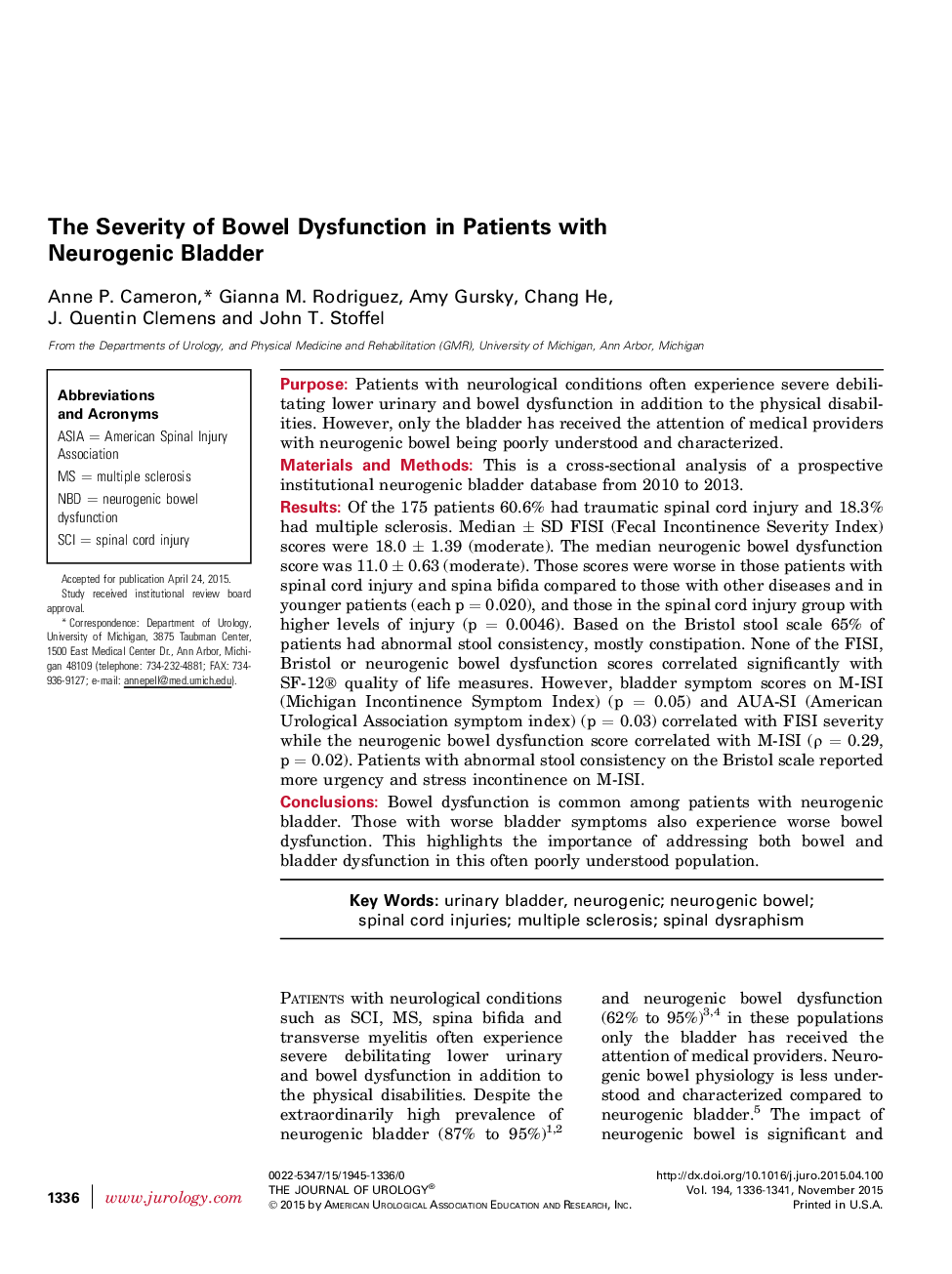| Article ID | Journal | Published Year | Pages | File Type |
|---|---|---|---|---|
| 3860994 | The Journal of Urology | 2015 | 6 Pages |
PurposePatients with neurological conditions often experience severe debilitating lower urinary and bowel dysfunction in addition to the physical disabilities. However, only the bladder has received the attention of medical providers with neurogenic bowel being poorly understood and characterized.Materials and MethodsThis is a cross-sectional analysis of a prospective institutional neurogenic bladder database from 2010 to 2013.ResultsOf the 175 patients 60.6% had traumatic spinal cord injury and 18.3% had multiple sclerosis. Median ± SD FISI (Fecal Incontinence Severity Index) scores were 18.0 ± 1.39 (moderate). The median neurogenic bowel dysfunction score was 11.0 ± 0.63 (moderate). Those scores were worse in those patients with spinal cord injury and spina bifida compared to those with other diseases and in younger patients (each p = 0.020), and those in the spinal cord injury group with higher levels of injury (p = 0.0046). Based on the Bristol stool scale 65% of patients had abnormal stool consistency, mostly constipation. None of the FISI, Bristol or neurogenic bowel dysfunction scores correlated significantly with SF-12® quality of life measures. However, bladder symptom scores on M-ISI (Michigan Incontinence Symptom Index) (p = 0.05) and AUA-SI (American Urological Association symptom index) (p = 0.03) correlated with FISI severity while the neurogenic bowel dysfunction score correlated with M-ISI (ρ = 0.29, p = 0.02). Patients with abnormal stool consistency on the Bristol scale reported more urgency and stress incontinence on M-ISI.ConclusionsBowel dysfunction is common among patients with neurogenic bladder. Those with worse bladder symptoms also experience worse bowel dysfunction. This highlights the importance of addressing both bowel and bladder dysfunction in this often poorly understood population.
